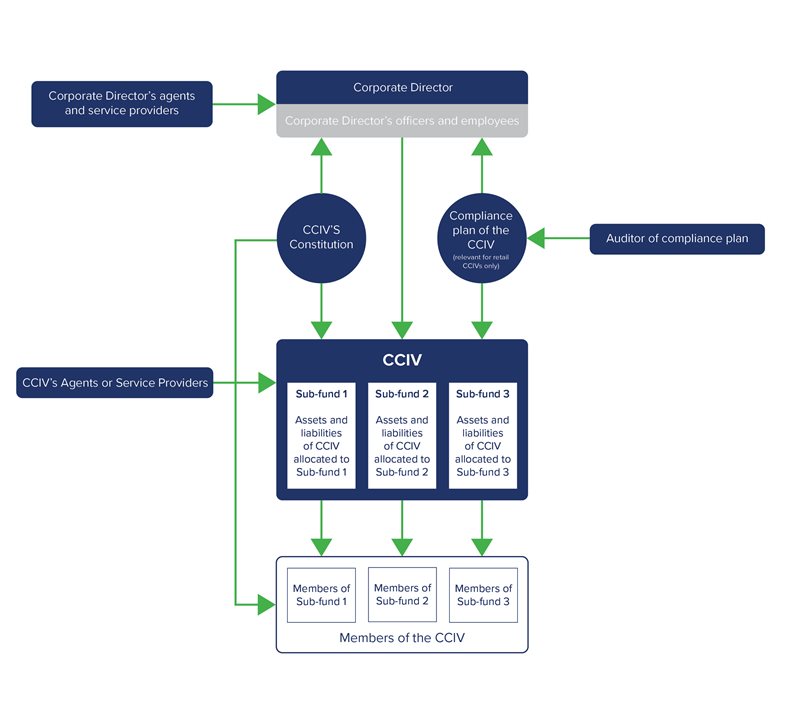Key Points:
-
A CCIV is a new type of company, limited by shares. It is its own separate legal entity, and must have at least one ‘sub-fund’, which involves at least one member.
-
A CCIV must have a corporate director, which must be a public company with an appropriate Australian Financial Services Licence (AFSL).
-
Considerations for a CCIV company include licensing, disclosure and taxes.
As of 1 July 2022, a new type of company exists in Australia, called a Corporate Collective Investment Vehicle
(CCIV). After years of consultation and discussion, the next step is here in changing ways that Australians can invest their money and grow their personal investments.
What is a CCIV?
A CCIV is a new type of company, limited by shares. It is its own separate legal entity, and must have at least one ‘sub-fund’, which involves at least one member. Sub-funds are similar to classes of units in unit trusts, but they have a lower risk of cross-class liability.
- CCIVs must have a constitution that meets prescribed content rules (similar to an MIS - Managed Investment Scheme).
- CCIVs cannot hire employees, officers or directors, and each CCIV will have just a ‘corporate director’.
- CCIVs will be easily recognisable because at the end of its name, instead of “Pty Ltd”, it must have “Corporate Collective Investment Vehicle”.
A visual overview of a CCIV structure can be found below.

How a CCIV works
For those interested in or familiar with global investment, a CCIV is a familiar structure, and is intended to make it easier to branch out investments in a recognisable form for international investors.
- A CCIV must have a corporate director, which must be a public company with an appropriate Australian Financial Services Licence (AFSL), like the existing framework for MISs.
- Each CCIV will operate as a separate legal personality, but the sub-funds will not. They will operate separately from one another – there is no crossover of assets, liabilities, members or profits, but they all come under the same CCIV.
- The tax framework for CCIVs is similar to the existing framework for ‘Attribution Managed Investment Trusts’ (AMITs).
What does a CCIV mean for companies?
Licensing
As mentioned above, the corporate director can only
"operate and conduct the affairs of the CCIV" if it is authorised under its AFSL to provide this service.
Disclosure
The CCIV itself will be responsible for issuing a Product Disclosure Scheme to retail clients that relates to each sub-fund, and the CCIV as a whole. The corporate director will not be the entity issuing the PDS.
Tax
Tax legislation has also been introduced, so that CCIVs can be treated like AMITs for tax. This means that investors will generally have the same benefits of flow-through taxation (subject to a couple of tests).
Interested in a CCIV structure?
The requirement of a corporate director to be a public company with an AFSL makes it easier to transition to a CCIV structure for those companies that already have AFSLs as part of managed investment schemes, however, creates a barrier to entry for those that don’t.
As a brand-new regime, CCIV structures see exciting possibilities for investors, but a significant amount of setup work required. There are many regulatory changes and technical aspects to the decision, so seek advice to determine if a CCIV is right for your circumstances.
Hicksons Lawyers’ commercial team has extensive expertise in this area and is available to help with any questions you may have.
Post by Hicksons Partner, John Kell and Solicitor, Daniel Coppel.